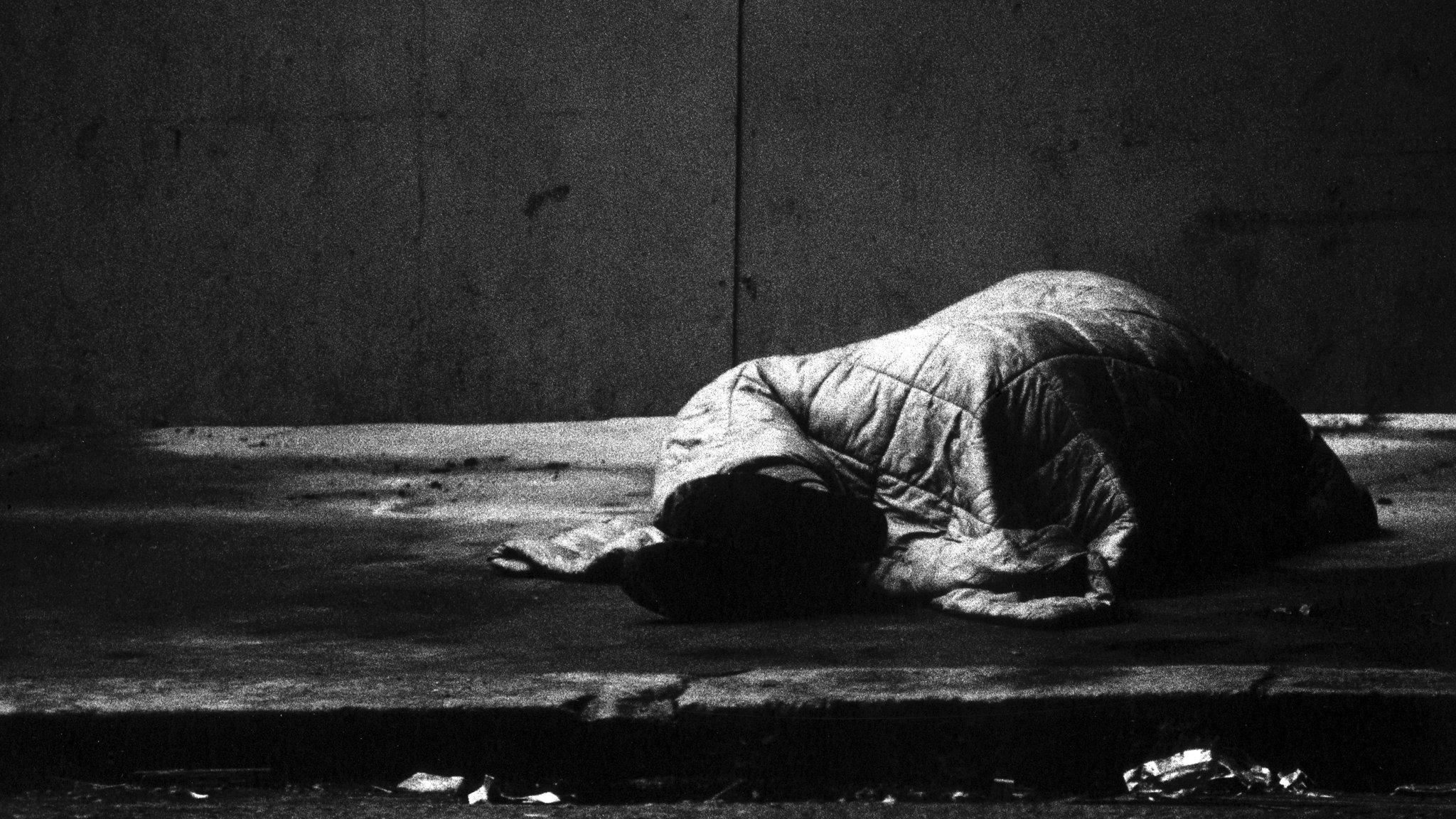Homeless man tells of 'nightmare' life on Wrexham streets
- Published
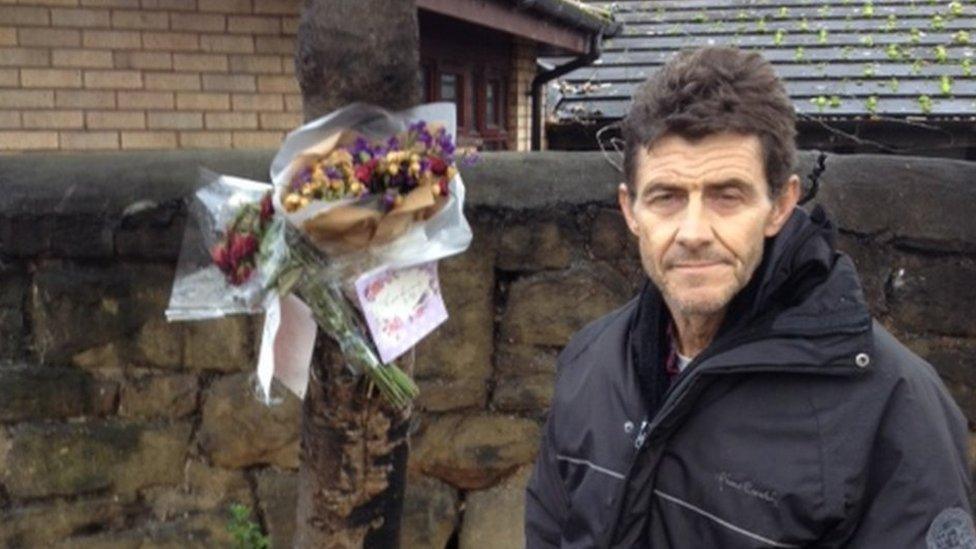
While many people will spend the run-up to Christmas worrying about what gifts they have yet to buy, others will worry about whether they have a place to sleep.
In Wales, thousands of people, external will spend the festive season on the streets.
One of them is Tony, who has spent six years without a permanent home.
He has struggled to survive on Wrexham's streets and lost about 25 friends - many to drugs.
In Needle Woods, he has to tread carefully because the leaves on the ground can hide the needles that give this place its nickname.
It is not really a wood, but a few trees in between Wrexham's police station and one of the town's busiest supermarkets.
Most people will have driven past it, unaware this is where Tony, and other homeless people, sometimes bed down for the night.
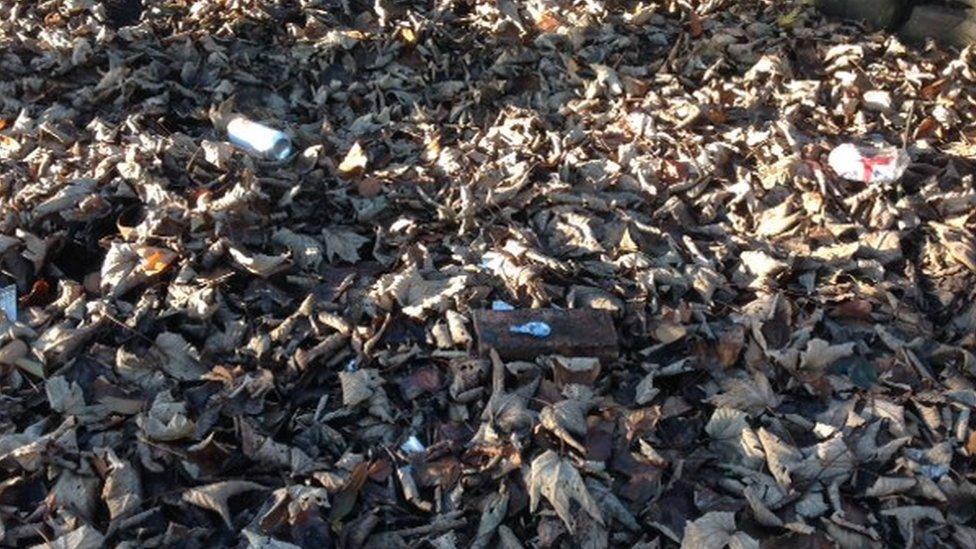
Litter including empty alcohol cans can be found in the park
Among the leaves lie a drug user's stericup, empty cans of lager and strips of foil.
Withering flowers and two sympathy cards hang on a nearby tree. This, Tony says, is where a friend died a few weeks ago.
"He'd been off heroin for a while because he'd been in prison, so his tolerance had gone down" Tony recalled. "He decided to have a dig of heroin but unfortunately he overdosed and he ended up dying."
It is not the first friend Tony has lost on the streets. In the six years he has been homeless "probably 20 or 25 have died" - many from drug abuse.
Although he experimented a few times with amphetamines years ago, Tony did not take drugs regularly until he became homeless.
"I was on the streets about four months before I actually touched amphetamine again," he said.
"It was on a low day... and ever since that day I was taking amphetamine again. I couldn't get off it. I was taking more and more.
"It keeps you warm because it speeds your heart up, keeps you going, stops you sleeping so you can keep on going all night. It seemed to suit my lifestyle.
"It's really, really hard when you're on the streets. The drugs seem to suit the situation I'm in. It just makes me feel better on the streets, to cope with it. I don't have to think about things as much.
"It numbs my feelings in that way so I don't have to think so much about what I'm missing... my kids, that life, and it genuinely makes it easier. It makes me feel normal... more normal."
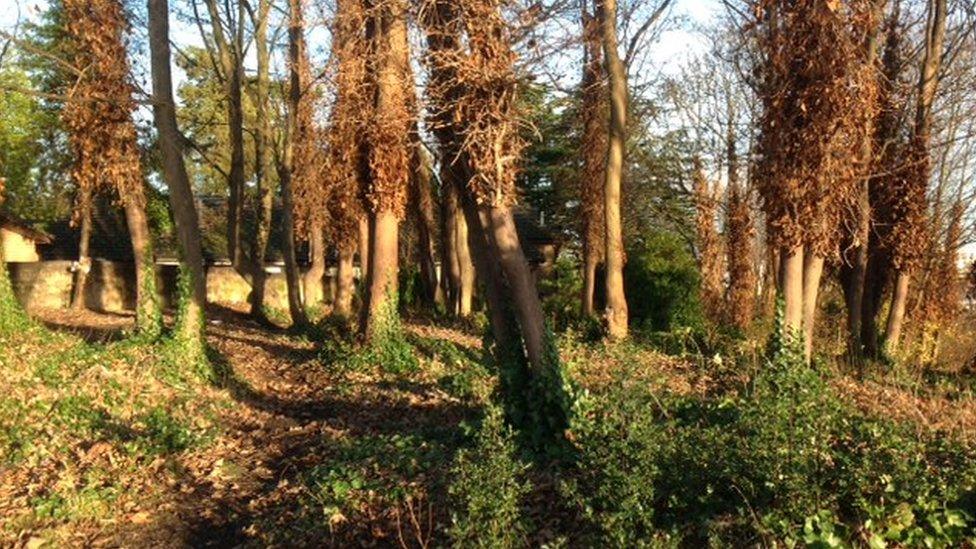
Shoplifting paid for the drugs. It also led to a five-and-a-half month jail sentence. Following release, he was back on the streets - and back on the drugs.
A former painter and decorator with two young children before his marriage broke down, Tony, now 53, found himself homeless at the age of 47.
The first six months were the worst.
"It was just getting used to it, adjusting, realising I didn't really have a life anymore," he remembered.
"It was just existing from day to day, having people look at you like you're dirt on their shoe.
"It's still devastating to me now but I've adapted. I had to adapt and harden myself up a bit."
Asked how he would sum up the past six years of his life, he said: "That's a hard one. Devastation, obviously, because of my family. I don't have any contact with them now.
"I used to have a life - now I haven't really. There's no quality there. It's just getting by every day."
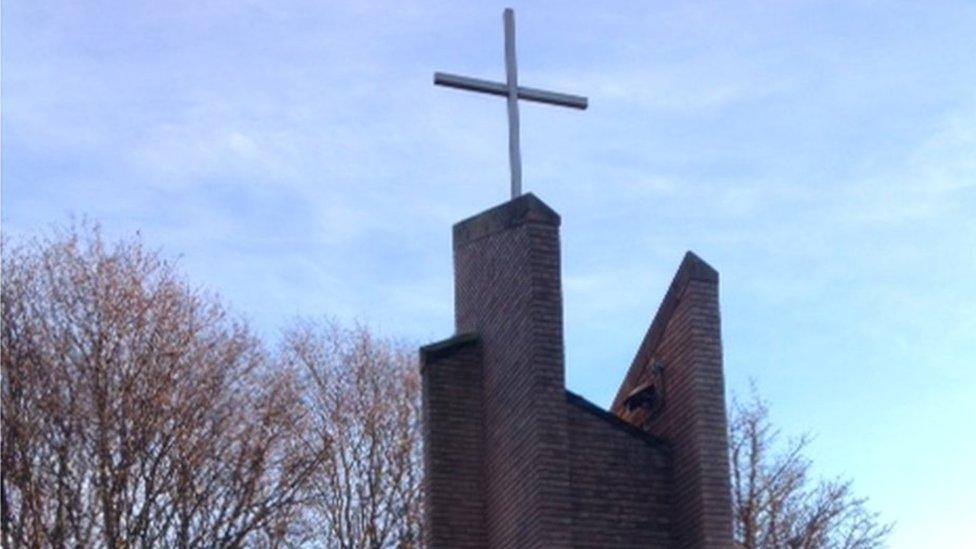
A short walk from Needle Woods, next to a busy road, stands a tall brick cross outside a church. It is hollow at the bottom, large enough for a couple of people to shelter from the elements.
A few years ago, during a deep freeze, Tony and a friend crawled inside.
"We woke up in the early hours of the morning, both shivering, and in the first stages of hypothermia I'd say," Tony said.
"There was a thick layer of frost on our clothes. It was a good job we woke up that night... it's the closest thing I've ever come to dying since I've been on the streets."
Knowing the best sleeping spots is crucial to survival. You rarely see people on park benches, Tony explains, "unless they're that tired they just fall where they are".
"Usually you find a place hidden away, out of the way of the public - a quiet place down an alley, a woods, behind shops - anywhere really, just to get out of public view," he said.
"You can be attacked at any time... go to sleep, you can be robbed. It's just always there. You've constantly got to be on your guard."
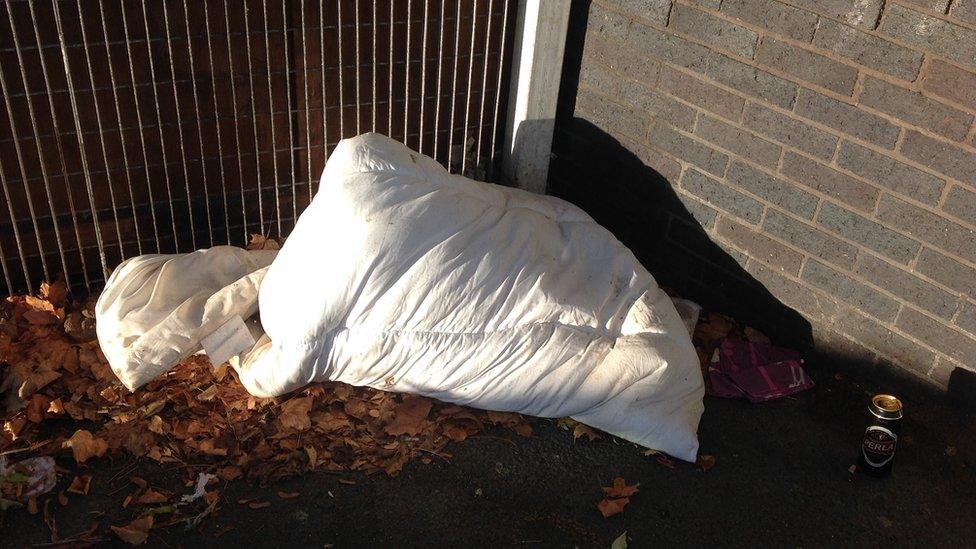
A duvet at the back of the Wrexham's leisure centre
Drunken revellers at closing time are always a threat, Tony says, with homeless people easy targets for violence "just for fun".
Sometimes, it is fellow homeless people you need to worry about, when they "pretend to be your friends, get a relationship going... then they'll rob you as soon as your back's turned".
At the back of the town's leisure centre are the tell-tale signs a rough sleeper has spent the night - empty beer cans, tin foil, a few scraps of food.
Homeless people like it here, Tony says. Hot air is pumped through vents and it "warms your body up a couple of degrees and just takes the edge off" the cold.
The winter months are always hardest, "especially when it starts raining. You get wet, then it gets cold, freezing later on," he said.
"Once you're wet you can't dry yourself really. You can't go in places because they don't want you in there."
Some nights, Tony sleeps at the Ty Nos night shelter, run by Clwyd Alyn Housing Association.
'Bad nightmare'
Those lucky enough to find a bed for the night are also fed. However, the centre can only sleep 16 people a night, and with demand high, a space is never guaranteed.
"You're cold, you're hungry," he says. "It's just devastating to go back out in the cold and just bear and grin it all night. You know you've got all night to suffer it then."
Every day is hard on the streets. Things get harder at Christmas though.
"People start thinking about their families, friends," he says. "If you've got kids, especially. It is hard, really tough.
"This isn't life, this is just existing. It's just horrible.
"You're constantly depressed and you're really just longing for something to change, something to happen, almost like a miracle to happen... pluck you out of the situation and put you somewhere else.
"It feels like you're in a bad, bad nightmare."
- Published9 February 2016
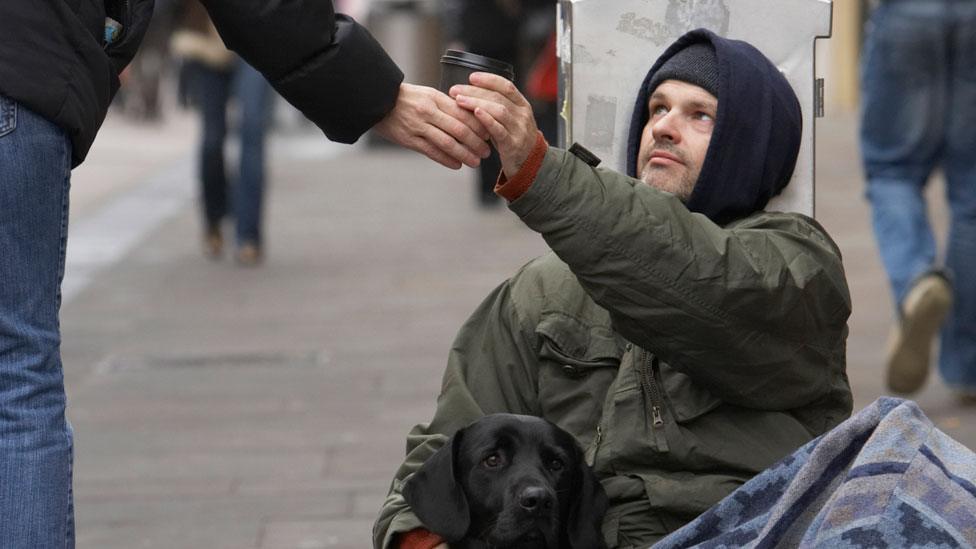
- Published27 April 2015
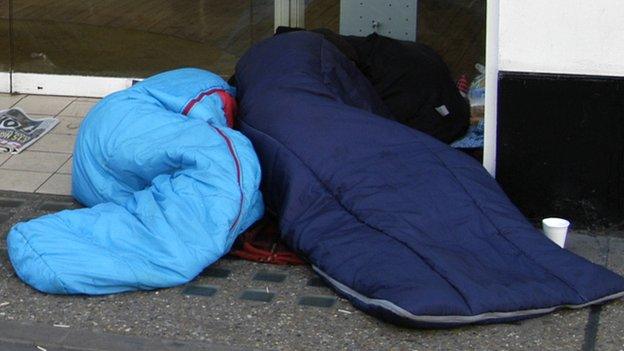
- Published11 August 2015
